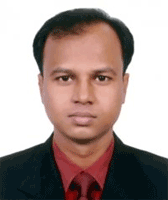Shahanur Islam
2010 Asia JusticeMakers Fellow, Bangladesh

About Shahanur
Growing up and working for human rights in Bangladesh, Shahanur noticed that people often become victims of their own ignorance and lack of resources vis-à-vis the criminal justice system.
Shahanur holds a Masters in Laws (LL.M) with a focus on human rights law, and has about ten years experience working in the fields of human rights, peace advocacy, criminal justice and good governance. His experiences has given him technical and managerial skills covering a wide range of development areas, including designing and implementing projects related to human rights, criminal justice, peace and good governance; providing legal support and counseling to victims of violence (focusing on ethnic and religious minority women and children); initiating and carrying out projects to strengthen local government; networking with different NGO’s; facilitating trainings, seminars, and workshops on human rights issues as a trainer and moderator; and lobbying both at national and international levels. Shahanur also has experience providing direct legal support to the Bangladesh Court for Criminal Justice, and is currently the Executive Director of the Bangladesh Institute of Human Rights (BIHR).
The Challenge
Bangladesh’s legal system is fraught with problems, making justice essentially inaccessible to most of its citizens. The government has been accused of committing human rights violations. Ethnic and religious minorities are particularly vulnerable and are often targets of violence and domestic problems, not only by average citizens but also by law enforcement officials. When someone from an ethnic or religious minority reports a crime, it is common for the police to refuse to file the complaint or investigate. Shahanur identifies three fundamental reasons for the denial of legal rights: it takes too long for cases to be tried in court, people cannot afford to pursue their cases, and the legal system is too complex for the average citizen to understand.
The Innovation: Prevention of Torture through Direct Legal Aid and Human Rights Education
Shahanur’s project aimed to confront these problems by providing support for torture victims and teaching professionals and the general public about human rights. The primary goal was to raise legal awareness among citizens, law enforcement officials, and those involved in the judicial process. During the project, 15 lawyers, four police and prison officials, five journalists, three judicial officials, and three human rights activists received human rights training focused on torture and the rights of detainees, with two participants selected as trainers for future events. Shahanur induced the high court to issue an order asking the home secretary, law secretary, police inspector general, and deputy inspector general to investigate a torture complaint, and the law secretary was asked to form a related investigative committee. The project also saw one person released on bail and four policemen arrested.